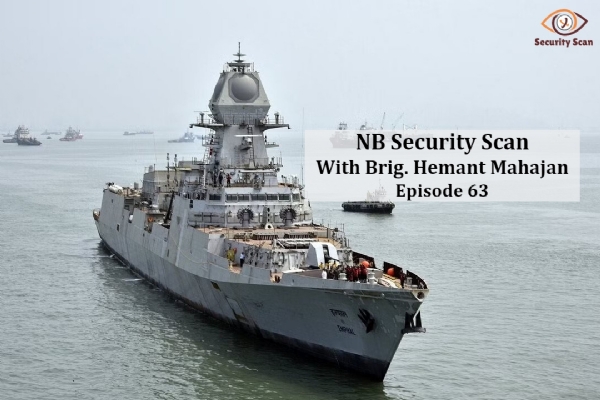Pakistan a Failed State
Targeted Killings Of Designated Terrorists By Unknown Assailants In Pakistan
There has been recent targeted killings of designated terrorists by unknown assailants on Pakistani soil. The security forces in the country are failing miserably.
Recently Sarfaraz bugti has blamed the recent blasts of Balochistan on RAW. Pakistan amid its failure is blaming India to shift attention from its own security collapse.

There are a number of factors that may be contributing to these security challenges. One factor is the ongoing conflict in Afghanistan. The withdrawal of US and NATO troops from Afghanistan has created a power vacuum that has been exploited by terrorist groups, such as the Taliban and the Haqqani Network. These groups have used the safe haven they have found in Afghanistan to launch attacks on Pakistan.
Another factor is the sectarian violence that has plagued Pakistan for many years. This violence is often rooted in deep-seated religious tensions between Sunni and Shia Muslims. It has been exacerbated by the rise of extremist groups, such as Lashkar-e-Jhangvi and Tehreek-e-Taliban Pakistan.
The recent attacks on army personnel have also raised concerns about the morale and effectiveness of the Pakistan military. The military has been under a great deal of strain in recent years, due to the ongoing conflict in Afghanistan and the sectarian violence within Pakistan. This strain may be making it more difficult for the military to effectively counter security threats.
It is possible that the recent attacks on terrorists in Pakistan could be orchestrated by other terrorist groups. There is a long history of infighting and rivalry between terrorist groups in Pakistan, and it is possible that one group is trying to gain prominence by attacking another.
One possibility is that the attacks were motivated by revenge. The terrorist groups that have been targeted by these attacks have been responsible for numerous atrocities, including the killing of civilians and the destruction of property. It is possible that other terrorist groups wanted to retaliate for these attacks.
Another possibility is that the attacks were motivated by competition for resources and territory. The terrorist groups that have been targeted by these attacks control lucrative drug trafficking routes and other sources of revenue. It is possible that other terrorist groups wanted to seize control of these resources and territory.
The terrorist groups that have been targeted by these attacks hold a variety of different ideological beliefs. It is possible that other terrorist groups carried out the attacks to eliminate their ideological rivals.
The country is on the way to a security collapse because it has been harbouring terrorism for a long time without considering the consequences. Pakistan has a long history of blaming India for its domestic problems.
External Security & Internal Security
After Ladakh, Indian Army plans to deploy fast boats, landing craft at other border areas
The Army plans to acquire six fast patrol boats and eight landing craft assault for border areas. The boats will be deployed in areas like Sir Creek, Brahmaputra river basin, and Sundarban delta areas. The fast patrol boats will be rugged and versatile, capable of carrying eight fully-armed soldiers for various tasks. The landing craft assault will have the capacity to transport 35 soldiers along with their weapons and equipment.
Indian Navy gets its third stealth destroyer
Mazagon Dock Shipbuilders Limited (MDL) has delivered the third stealth destroyer of Project 15B Class guided missile destroyer, 'Imphal', to the Indian Navy, four months ahead of schedule. This warship is the first to have accommodation for women officers and sailors. It is armed with supersonic 'Brahmos' and 'Barak-8' missiles, as well as anti-submarine weapons and sensors. The ship has completed all sea trials and is equipped with advanced automation systems. The indigenous content of the P15B class destroyers is 72%, reflecting the government's focus on the 'Atmanirbhar Bharat' program.

No comments:
Post a Comment